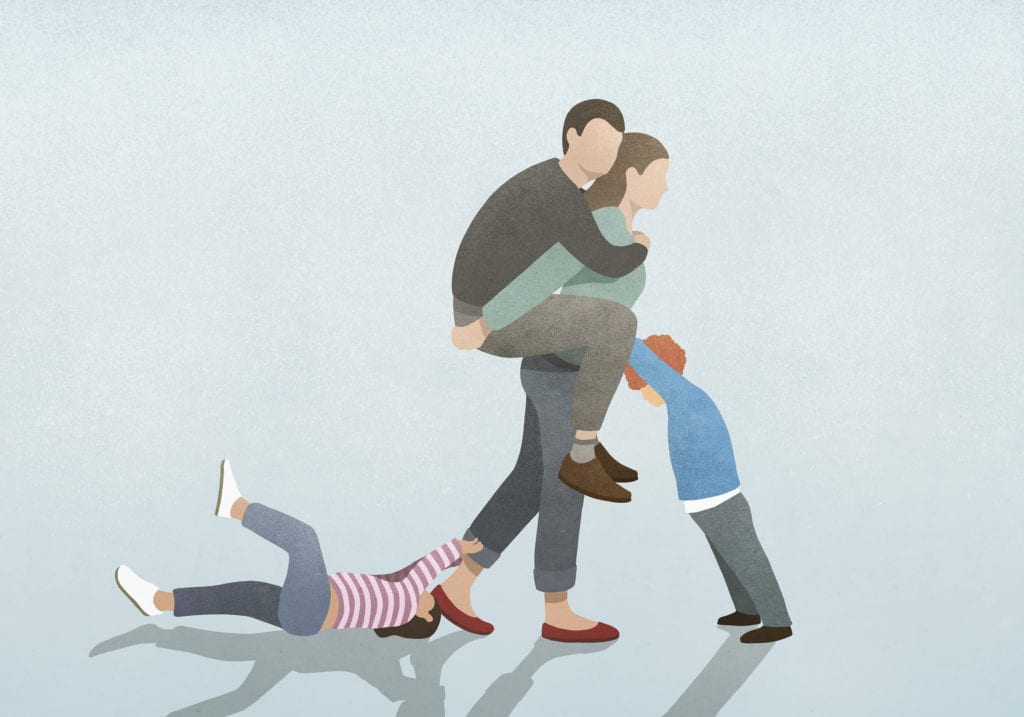
#IWD2021: The Great Shecession: Will Reshma Saujani’s ‘Marshall Plan For Moms’ Save The Women Labour Force From Extinction?
Lifestyle Mar 08, 2021
Last year on International Women’s Day we talked about how the COVID-related job losses shouldered by women would be a devastating scenario when it comes to their livelihood. However at that time we were still in the early stages of the pandemic. Now a year later, we take a closer look at how the tragic outcome of the Shecession has come true and what proposals and steps that are being taken to save the women from further economic devastation.
We are almost a year into the global COVID-19 pandemic, but the ‘Shecession’ we spoke about last year continues to rage on.
The double day for many women has grown longer and the pandemic exacerbated the problem with duties, such as educator, being tacked onto their long lists.
However, it seems that the winds of change may be blowing in the form of the Marshall Plan for Moms, as many (including allies) are #ChoosingToChallenge the status quo of the undervalued ‘double day’ for mothers.
Job Losses And Childcare Gains:
Before we get into what the Marshall Plan for Moms entails, let’s explore what happened since we last spoke about the Shecession.
At the start of 2020, CNN Business shared that more women in the United States were employed than men. Then, the pandemic hit and the Shecession ensued.
ABC News reported that “…women have lost more than 5 million jobs since February 2020. Since the pandemic began, they’ve experienced nearly 54% of overall net job losses versus men.” In fact, in December 2020 there was massive cuts to employment, and according to CNN Business, get this: “Women accounted for all the job losses, losing 156,000 jobs, while men gained 16,000.”
Meanwhile, for those women who were able to keep their jobs, “…42 % of working mothers reduced their working hours between March and July 2020 versus 30% of men,” notes ABC News.
Here in Canada. RBC released a statistic where they found that in Canada nearly 500,000 women remain unemployed due to the pandemic. Which is a staggering 10x more than their male counterparts.
But here is where things get sticky: childcare.

If you’re not sitting down, I’d highly recommend you do so as the statistics about which gender has been holding the reigns when it comes to childcare throughout the pandemic are staggering. USC Schaeffer highlighted the following:
- In households with children, 44% of married or co-habitating women report being the sole provider of care for their children as compared to 14% of men.
- Even while currently working, women are 27 % more likely to be the only providers of child care than working men, and 41 % less likely to report that their partner is the only provider of care.
- Not only do working mothers more often declare to be the only one providing care for their children, but they are also more likely to become the sole provider of care even if they were not at the beginning of the crisis.
- Among currently working parents who are married or living with a partner, women were 17 % more likely than men to become the sole child care provider at some point between April and July 2020.”
The added childcare duties have been stressful (to put it lightly) for many moms and have taken a toll on their mental health. Imagine being at work 24/7 with zero breaks – that’s essentially what it has been like for moms throughout the pandemic. For example, USC Schaeffer reported that “nearly half of all mothers reported at least mild symptoms of psychological distress in early April, after the nationwide school closings, as compared to 41% of women without school-age children and 32.5% of men.”

I’m not a parent, but I’ve experienced firsthand the toll being the primary caregiver has taken on moms. Many of my friends are working moms, and they’ve had to juggle working full-time with being caregivers and educators. I’ve been on video calls with them during the workday and I could see it in their faces that they were on the cusp of breaking down into tears, as their work duties and the needs of their children collided, while the dads were tucked away in a quiet office within the house. My friends have often told me that they feel like failures because they’re only able to focus so much attention on any given task. There has also been an immense amount of guilt as they’re not able to focus solely on their children’s needs, never mind their own needs as they navigate a global pandemic.
To which I say this: ladies, keep your heads up because you’re doing the best you can, and that’s all any of us can do during this time.
The Marshall Plan for Moms Is Long Overdue:
Reshma Saujani, Founder and CEO of Girls Who Code, whose family is originally from India, is advocating for moms in a big way.

In January of this year, Saujani penned an open letter (click here to read it) that was printed “…in The New York Times calling on President Biden and the rest of Congress to pass her Marshall Plan for Moms,” which was endorsed by 50 notable females, reports CNBC.
The Marshall Plan for Moms, which is intended to allow women to re-enter the workforce, includes the following as per their statement:
- Direct payments to moms, who have had their paid labor in the workforce replaced by unseen, unpaid labor at home.
- Passing long overdue policies like paid family leave, affordable childcare, and pay equity.
- Retraining programs to ensure women can fill the jobs that will exist.
- Plans to safely reopen schools 5 days a week.
Then, in February there was a follow-up piece (click here to read it) that appeared “…in the Washington Post signed by male allies who support the Marshall Plan for Moms,” explains Marshall Plan for Moms. The allies who signed the letter in solidarity include NBA stars Seth and his brother Stephen Curry, actor Don Cheadle, Nehal Mehta of Eniac Ventures, Former presidential candidate and current New York Mayoral candidate Andrew Yang, Former U.S. Secretary of Education; The Education Trust John B. King Jr. and so many more.
So, What’s Next?
While we wait for the Marshall Plan for Moms to make its way through Congress in the US, it’s crucial to appreciate the significance of this initiative, which would provide mothers with $2,400 US on a monthly basis.
It’s also important that men are standing beside women as they recognize that gender inequality is a problem, particularly when it comes to the current situation surrounding childcare and employment.
As Saujani’s letter states, the fact that the progress women made in the workforce were so easy to wipe out highlights that the patriarchal make-up of our world continues to reign, despite the fact that it’s women who are propping it up with the double day.
The time has come to break down and rebuild a system that values women and the unpaid work that they do.
What a time to be alive.
Main Image Photo Credit: Unsplash.com
Devika Goberdhan | Features Editor - Fashion
Author
Devika (@goberdhan.devika) is an MA graduate who specialized in Political Science at York University. Her passion and research throughout her graduate studies pushed her to learn about and unpack hot button issues. Thus, since starting at ANOKHI in 2016, she has written extensively about many challe...













































































































